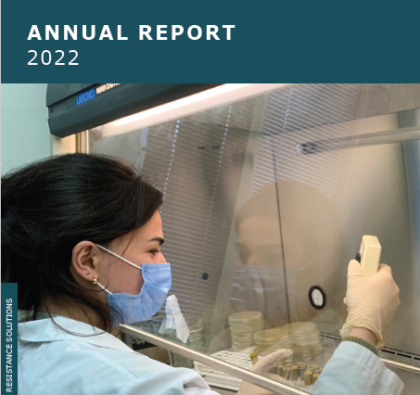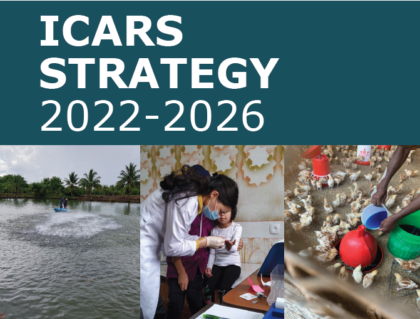Framework for ICARS’ Demonstration Projects
ICARS partners with low- and middle-income countries (LMIC) governments and supports their efforts to mitigate antimicrobial resistance (AMR) by co-developing and financing AMR intervention and Implementation Research projects (referred to as “research projects” in the following). The goal is for the projects to provide tailored solutions at national and local level that the countries can implement and scale up.
Each country applying for an ICARS grant must belong to the “DAC-list” (developed by OECD’s Development Assistance Committee), which confirms the eligibility to receive official development
assistance (ODA). The updated list can be accessed on OECD’s webpage.
In addition to being eligible to receive ODA, partner countries must demonstrate that they are committed to develop and implement the research project according to ICARS’ five core principles: “Country ownership”, “One Health lens”, “Partnerships”, “Solution-focused” and “Sustainability” as detailed in ICARS’ core principles in section 3. Countries requesting support are expected to lead the development and implementation of the research projects in collaboration with ICARS and to demonstrate commitment to implement successful solutions on a larger scale. At the moment, ICARS is financing and engaging in the co-development of small scale demonstration research projects with a typical duration of 2-3 years. This framework describes the phases of the application process (Figure 2), which includes: Expression of Interest (phase 1), Concept Note (phase 2) and Project Proposal (phase 3). The framework also specifies the general requirements that ICARS’ research projects must adhere to.
Details
Resource type: Report
Date: 30. July 2023
Author: ICARS
Share
Share this project on socials
Related resources
Related projects

Developing a multimodal strategy to decrease and/or limit the dissemination of carbapenem-resistant Enterobacterales (CRE) in public healthcare institutions in Colombia

Interventions to control the dynamics of antimicrobial resistance from chickens through the environment (ENVIRE)




